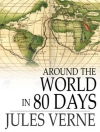The anthology ’The Great Classics of Russian Literature’ offers a rich tapestry of narratives and styles, weaving together the groundbreaking works of Russian literary giants with insightful contributions from select Western authors. This collection delves into themes of existential inquiry, social justice, and the human condition, presenting stories marked by a profound engagement with the tumultuous spirit of their time. Readers will find tales imbued with the dark humor of Saki, the psychological depth reminiscent of Dostoevsky, and the sweeping moral landscapes that echo Tolstoy’s influence, making this anthology an indispensable exploration of literary brilliance across borders. The featured authors, including titans such as Pushkin, Gogol, and Gorky, represent a diverse array of voices who have collectively defined and redefined Russian literature. Their works are pivotal to understanding not only the evolution of Russian storytelling but also the broader cultural and historical frameworks they embody. These narratives are situated against the backdrop of the Russian Empire’s dynamic socio-political changes, including serfdom, reform, and revolution, complemented by cross-cultural dialogues fostered by international contributors like Herman Bernstein and H.H. Munro, offering a nuanced portrayal of the era’s literary richness. This collection presents a cherished opportunity for readers to immerse themselves in an intellectually stimulating journey through varied perspectives and styles. Whether one seeks to understand the socio-political climates from which these narratives arose or simply wishes to appreciate the literary craftsmanship, ’The Great Classics of Russian Literature’ promises educational enrichment and thought-provoking engagement. As readers traverse these pages, they are invited into a dialogue between cultural epochs and literary traditions, uncovering truths about the shared human experience through the lens of unparalleled classic storytelling.
Om författaren
Leonid Andreyev, born in Oryol, Russia, on August 21, 1871, was a preeminent figure in Russian literature during the tumultuous times straddling the 19th and 20th centuries. Influenced by the likes of Fyodor Dostoevsky and brought into prominence during the era of Maxim Gorky, Andreyev quickly became known for his exploration of the darker and more complex corners of the human psyche and condition. His oeuvre, part of the wider movement of Russian Symbolism and later Existentialism, interrogated themes of death, despair, and the search for meaning in an often-cruel world. Notable works of Andreyev include ’King Hunger’, ’The Seven Who Were Hanged’, and ’The Red Laugh’, each marked by a dramatic intensity and philosophical depth characteristic of his literary style. ’The Great Classics of Russian Literature’ presumably serves as a compendium showcasing the quintessence of Andreyev’s narratives that probe the depths of existential dilemma and human emotion. His works, frequently suffused with a sense of tragic irony and a critique of the societal status quo, mirror the tumult of his times, including the rise of revolutionary sentiments in Tsarist Russia. Leonid Andreyev remained a profound force in Russian letters until his death on September 12, 1919, leaving behind a legacy etched into the canon of Russian and world literature. His literary style continues to be studied for its complex interplay of symbolism and its stark portrayal of the human condition.












